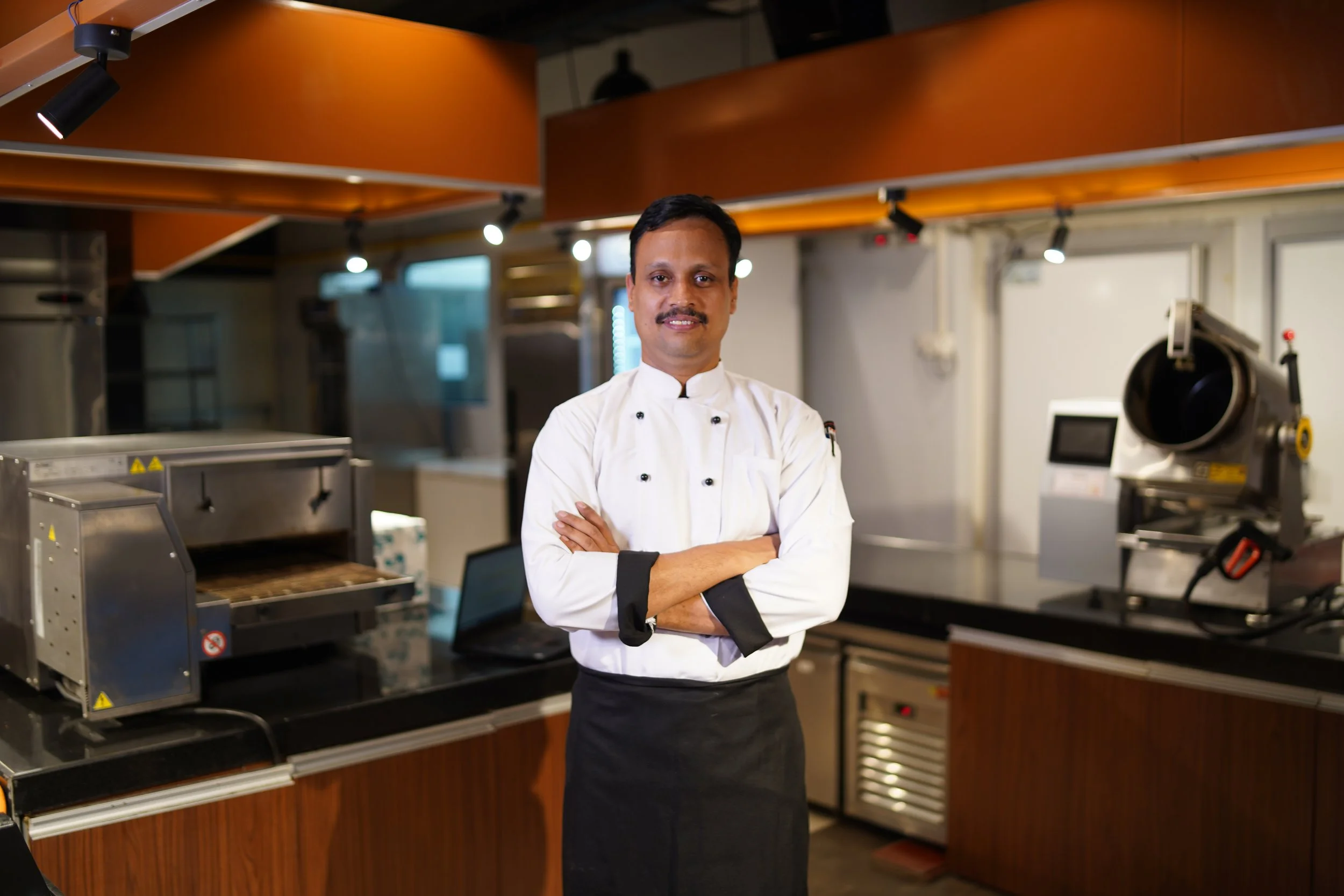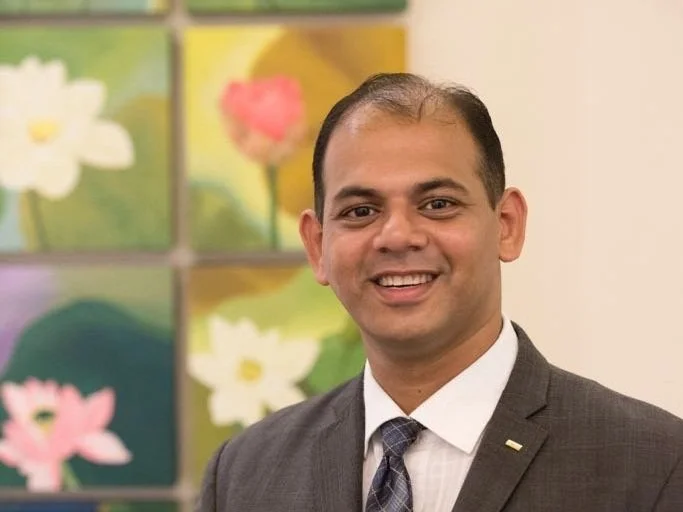Exclusive Interview | Jit Bose, Vice President Commercial - GRT Hotels & Resorts; Chair - The South India Chamber of Commerce ( SICCI) Hospitality Committee
/“The shift towards experiential travel is another trend that will redefine hospitality. Today’s travelers are increasingly looking for authentic, immersive experiences that connect them with the local culture and environment. This trend will continue to grow, pushing hotels to offer more personalized, location-specific experiences.”
How has your journey in the hospitality industry shaped your leadership philosophy, and what key experiences have defined your approach to management?
My journey in the hospitality industry has been a profound learning experience, one that has significantly shaped my leadership philosophy. Starting from entry-level positions in operations to eventually leading Sales & Marketing teams, I’ve come to understand that hospitality is more than just service—it’s about creating memorable experiences for guests and fostering a positive, empowering environment for colleagues.
One of the key experiences that defined my approach to hospitality was my time working with the Taj Group of Hotels on the frontline role. Handling diverse guest needs and resolving conflicts in real-time taught me the importance of empathy, active listening, and quick, effective decision-making. These skills have been pivotal in my leadership style, where I prioritize open communication and a collaborative approach to problem-solving.
Another defining moment was overseeing the launch of new properties and brand conversions, where I had the opportunity to lead a multicultural teams. This experience highlighted the importance of cultural awareness and sensitivity in leadership. Navigating different communication styles, work ethics, and perspectives enriched my approach to team management. I learned that fostering an inclusive environment, where every team member feels valued and understood, is crucial to driving collective success.
Leading such a diverse group taught me the value of adaptability and the importance of creating a shared vision that resonates across cultural boundaries. By embracing diversity, we were able to leverage a wide range of ideas and experiences, which significantly enhanced our service delivery and innovation.
Overall, my leadership philosophy is built on the principles of empathy, developing and nurturing relationships, empowerment, and a commitment to excellence. I believe that by nurturing a supportive and motivated team, we can consistently deliver exceptional service and drive sustained success.
The hospitality sector has faced unprecedented challenges in recent years. How have these experiences influenced your views on resilience and adaptability in business?
The hospitality sector has indeed faced some of the most challenging years in recent memory, with global disruptions pushing the industry to its limits. These experiences have profoundly influenced my views on resilience and adaptability, not just as necessary traits, but as foundational pillars for sustaining and growing a business.
The pandemic, in particular, highlighted the importance of flexibility in operations and strategy. When travel came to a standstill and hotels faced unprecedented closures, it was clear that traditional models were no longer sufficient. This period taught me that resilience isn’t just about weathering the storm—it’s about being proactive, anticipating change, and pivoting quickly to meet new realities.
For example, during the height of the crisis, we had to rapidly shift our focus to new revenue streams, such as offering day-use office spaces and creating safe, socially distanced experiences for local guests. These initiatives not only kept us afloat but also opened up new avenues for growth that we continue to explore today. It reinforced my belief that adaptability is closely tied to innovation; the ability to reimagine our offerings in response to external pressures has become a key component of our business strategy.
Moreover, these challenges have deepened my appreciation for the importance of a strong, cohesive team. Building a culture of resilience within the team—where every member feels supported and empowered to contribute ideas—proved to be essential in navigating through uncertainty. The experience has taught me that leadership in tough times requires not just a steady hand but also a willingness to embrace change and inspire the same in others.
In essence, the recent challenges have reinforced my view that resilience and adaptability are not just reactive measures, but proactive strategies that are vital for long-term success in an ever-evolving industry.
In your opinion, what role does technology play in enhancing guest experiences, and how do you see the balance between digital innovation and personalized service evolving?
Technology has become an integral part of the hospitality industry, playing a crucial role in enhancing guest experiences and improving operational efficiencies.. In my opinion, technology serves as a powerful tool that can streamline operations, offer convenience, and even elevate the personalization of services—provided it’s used thoughtfully and strategically.
From mobile check-ins to smart room controls, guests now expect seamless interactions that allow them to tailor their stay to their preferences. For instance, data analytics can help us understand guest preferences better, allowing us to offer customized amenities and experiences that resonate with individual tastes. However, while digital innovation is critical, the essence of hospitality lies in human connection.
The challenge, and opportunity, lies in finding the right balance between leveraging technology and maintaining the warmth of personalized service. I believe that technology should enhance, not replace, the human touch. It can handle routine tasks, freeing up staff to focus on delivering exceptional, personalized service that builds lasting relationships with guests.
As we move forward, I see the balance between digital innovation and personalized service evolving into a more seamless integration. The future of hospitality will likely involve a hybrid approach where technology handles the functional aspects—like booking, room preferences, and check-ins—while the human element focuses on creating meaningful interactions, responding to unique needs, and adding those special touches that make a stay memorable.
Ultimately, the goal is to use technology to empower our teams, enabling them to deliver more personalized, attentive service. By striking this balance, we can offer guests the best of both worlds: the efficiency and convenience of modern technology, combined with the warmth and care that defines true hospitality.
Sustainability is becoming a crucial focus across industries. How do you envision the future of sustainable practices in hospitality, and what initiatives have you found most impactful?
Sustainability is no longer a choice but a necessity across all industries, and hospitality is no exception. I envision a future where sustainable practices are fully integrated into every aspect of hospitality, from operations to guest experiences. The future of sustainable hospitality will involve not just reducing our environmental footprint but also contributing positively to the communities in which we operate.
Among the initiatives I’ve found most impactful are those that involve both guests and staff in the sustainability journey. For example, implementing energy-saving technologies like smart thermostats and LED lighting not only reduces energy consumption but also engages guests in our sustainability efforts by allowing them to make more environmentally conscious choices during their stay. Another impactful initiative has been the reduction of single-use plastics. Moving towards reusable, biodegradable alternatives for amenities and packaging has significantly reduced our waste footprint.
Additionally, sourcing locally and responsibly, whether it’s food for our restaurants or materials for our properties, supports local economies and reduces the carbon footprint associated with transportation. Water conservation is another critical area where we’ve made strides. Implementing water-saving fixtures and encouraging guests to reuse towels and linens has not only reduced water usage but also increased awareness among our guests about the importance of conservation.
Guests are more informed and concerned about their environmental impact, and they’re choosing brands that align with their values. This means that sustainable practices will not only be a competitive advantage but also a core expectation. I envision a future where sustainability is a key pillar of hospitality, driving innovation, enhancing guest satisfaction, and contributing to a better planet.
With the industry’s increasing emphasis on wellness, how do you believe hospitality can better cater to the holistic needs of guests, from mental well-being to physical health?
The growing emphasis on wellness in the hospitality industry reflects a broader societal shift towards a more holistic approach to health, where mental, emotional, and physical well-being are seen as interconnected. As guests increasingly seek out experiences that support their overall well-being, hospitality has a unique opportunity to cater to these holistic needs in a way that feels both natural and luxurious.
As the concept of wellness continues to evolve, I believe hospitality will increasingly focus on curating experiences that align with the guests' desire for a balanced, healthy lifestyle. This means moving beyond traditional luxury to offer meaningful, transformative experiences that leave guests feeling rejuvenated, both in body and mind. By embracing this holistic approach, the industry can not only meet the growing demand for wellness but also redefine what it means to provide exceptional guest experiences.
What are some of the most significant trends you foresee shaping the hospitality industry in the next decade, and how should leaders prepare to navigate these changes?
The hospitality industry is on the cusp of significant transformation, driven by shifts in technology, consumer preferences, and global challenges. Over the next decade, several key trends are likely to shape the industry, and leaders must be proactive in adapting to these changes to stay competitive.
One of the most significant trends is the continued rise of digitalization and smart technology. From AI-powered customer service to personalized guest experiences driven by data analytics, technology will play an increasingly central role in how hotels operate and interact with guests. Leaders should invest in digital infrastructure and upskill their teams to ensure they can leverage these technologies effectively, enhancing both operational efficiency and guest satisfaction.
Another emerging trend is the growing emphasis on wellness and holistic guest experiences. As discussed earlier, guests are looking for more than just a place to stay—they want experiences that support their mental, emotional, and physical well-being. This will lead to the development of wellness-focused properties and the integration of wellness features across all levels of service. Leaders should focus on creating environments and programs that cater to these evolving needs, potentially partnering with wellness experts to offer innovative, health-focused experiences.
The shift towards experiential travel is another trend that will redefine hospitality. Today’s travelers are increasingly looking for authentic, immersive experiences that connect them with the local culture and environment. This trend will continue to grow, pushing hotels to offer more personalized, location-specific experiences. Leaders should encourage creativity and collaboration within their teams to develop unique offerings that resonate with guests and differentiate their brand.
Finally, the industry will need to address the growing importance of inclusivity and diversity. As the global customer base becomes more diverse, hospitality leaders must ensure their teams and services reflect this diversity. This means fostering an inclusive workplace culture, offering culturally sensitive services, and ensuring that all guests feel welcome and valued. To navigate these changes, leaders must be agile, forward-thinking, and committed to continuous learning.
Embracing innovation, prioritizing sustainability, and staying attuned to shifts in consumer behavior will be key. Additionally, cultivating a culture of adaptability within their organizations will allow them to respond quickly to new opportunities and challenges. By preparing for these trends now, leaders can position their businesses to thrive in the dynamic landscape of the next decade.
We last spoke to Jit in 2021, when he was Area Director of Sales & Marketing - South India, Director of Sales & Marketing - Crowne Plaza Chennai Adyar Park.



































